

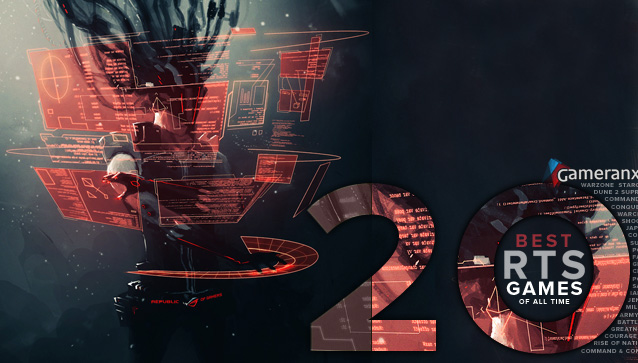
August 26, 2015 Update: We've added even more games to this list, including some newly released titles in 2015.
Since the mid-90s, real-time strategy games have become a videogame staple, particularly on the PC due to the mouse and keyboard controls which allow players to point at units, drag their mouse across the screen, and select the armies they'll use to attack other units.
The games belong to the domain of PC gamers, giving the PC platform an edge against their counterparts well beyond just having better superior hardware.
Regardless of the genre's love affair with the PC, the decades have been kind to the genre, offering gamers with everything from ultra-competitive titles like Starcraft to more toned-down real-time strategy games like Gene Wars (which isn't on this list, because it kind of sucked) and even casual titles like The Baldies and Nintendo's Pikmin series of games. Even the Nintendo DS played host to several RTS games, including a Final Fantasy title.
Regardless, you'll find none of those mediocre titles here, as we're only interested in writing about the best of the best in the RTS genre. Expect to find some fan favorites and more than a few games that flew under everyone's radar. We're including them here because that's where they belong.
We've decided to catalogue the 20 best real-time strategy games of all time in the following pages. These date back from way before RTS became a popular genre, to the most up-to-date titles. [Art by Longiy] Click on the next slide to begin!
2014/2015 Addition: Grey Goo
Developed by Petroglyph, the makers of Command & Conquer, Grey Goo is a return to form. In the game, players fight for survival on a planetary oasis by commanding one of three factions: the defense-oriented Humans, the versatile Beta, or the all consuming Goo. The game caters to a myriad of play styles, including the ability to turtle, by offering players the ability to construct impenetrable walls, dominate from strategic outposts—or become the Goo and overrun your enemies.
Set during the Dark Ages against a background of famine, disease, and war, a new power of steppe warriors rises in the East that threatens to overrun the fallen kingdoms of the classical world. The warrior king approaches, and he has his sights set on conquering Rome.
Planetary Annihilation can be best described as the spiritual successor to Total Annihilation. Within the game, players can colonize solar systems, lay waste to entire planets, and crush their foes in epic battles with multiple players and thousands of units in the field. The game is made even bigger with the release of the Titans expansion pack.
Company of Heroes 2 is the sequel to the World War II RTS that made headlines years ago. It features a huge single-player campaign, cooperative play and a host of standalone expansions allowing players to go head to head in cooperative online mode.
StarCraft II: Wings of Liberty and its two expansion packs is the trilogy sequel to the multiple award-winning StarCraft and its own expansion StarCraft: Brood War. The graphics are beautiful and the strategies are more complex than ever before.
Dune 2: Battle for Arrakis is the game that started it all. Developed by Westwood Studios, and set in Frank Herbert's fantastic Dune series of novels, players took control of one of the great houses: Atreides, Harkonnen, or Ordos—the last of which was invented by the game developers and not original to the series.
As the patron of your house, you commanded armies to march across the face of Arrakis to conquer the flow of spice—for he who controls the spice, controls the universe.
Although simplistic by today's standards of RTS, Dune 2 was the first of its kind and established Westwood Studios as an RTS developer.
Warzone 2100 was set in the aftermath of a technological apocalypse that left humanity in tatters . You play one of the remaining human factions who attempts to reunite the survivors and bring peace to the wasteland, and discover the cause of the apocalypse.
The little known game wasn't a typical RTS. Although it played very much like every other RTS on the market at the time, it contained a persistent single-player campaign that allowed you to salvage the technology of enemy units to incorporate into your own armies and use as an edge against enemies.
Ground Control is one of the earliest RTS games that put players in control of a set amount of units in each mission instead of getting players to construct buildings or worry about build queues.
Instead, you were given a set of units in each mission that you had to use to properly defeat your enemies without taking too many losses, as losing your dudes early on severely handicapped you later in the mission. The game was very much a tactical challenge.
What Ground Control started, World in Conflict perfected. Set in a scenario in which the Cold War became very much a Hot War, seeing both Europe and America invaded by the Soviets, World in Conflict puts players in the role of an American commander who must take charge of the remnants of the US army and drive back the Soviet invaders–first by activating the nuclear arsenal and then through ground-pounding force.
Like Ground Control, also made by Massive Entertainment, World in Conflict sees players take charge of a small company of units and exercise tactical superiority instead of worrying about build orders and the like. It's a game that very much puts you on the front lines.
Tiberian Sun was the long-awaited sequel to the first Command & Conquer, and one of the first games to use voxel graphics ahead of 2D sprites, or even 3D polygons. The game's use of voxels gave it an impressively unique aesthetic that lent a ton of charm to the game as a whole.
Like the first game, the game offered two campaigns split between separate discs that put you in command of the Brotherhood of Nod or the GDI. It was one of the first games to make heavy use of the environment by allowing your soldiers to become poisoned, and even mutated by Tiberium fields. Ice and destructible terrain also played a role in the game, by allowing you to knock out bridges to close off approaches or funnel the enemy units towards a killzone.
Supreme Commander is the spiritual sequel to Total Annihilation. It offers ultra large maps and equally huge robotic armies that march across the battlefield. The game allows you to get down and dirty by zooming close into your units or a strategic overview that sees you controlling icons that represent your units from way above.
Playable across multiple monitors, the game offers a sense of scale missing from almost every other real-time strategy game as you send hundreds of units to battle countless others—all of whom are dwarfed by some super gigantic units that walk across the battlefield like titans.
Shogun 2: Total War revisits the setting from which the first Total War originated—Japan. Like the original game, you take charge of a Daimyo pursuing the position of Shogun—or overlord of Japan.
Throughout the game, you're tasked with managing your cities and your territory while commanding your army into battle against enemy samurai and their peasant followers. Depending on which territory you start in, you will possess a multitude of strengths, as well as weaknesses to contend with. Conquering territories will gain you access to more units, wealth, and better technology to use against your opponents.
Red Alert is the not-quite-sequel to Command & Conquer. Why, it isn't even set in the same universe. Instead, we're presented with a Cold War-themed world in which Hitler never rose to power because Einstein, in all his intelligence, decided to shake hands with the dictator before he rose to power and extinguish him from history. His actions had irreversible consequences that caused the Soviets to rise to power instead of being diminished and set back by the Germans during the Second World War.
Predictably, the Soviets construct a war machine larger than anything Hitler could've envisioned and stage the invasion of Europe.
Like the original Command & Conquer, the game's campaign is split across two discs and allows you to tell two versions of the story based on which army you decide to command.
The success of Age of Empires 2 gave rise to many copycats, but Rise of Nations stood above the rest by actually being its own thing instead of copying Age of Empires feature by feature.
The game offered a persistent campaign that enabled your conquest of the world turn by turn. Every decision you made counted towards (or against) your absolute victory as you rose through the ages from prehistory to the modern age.
Medieval: Total War is arguably the best game in the long-running series of war games by Creative Assembly. You play the role of a monarch of one of the many kingdoms that ruled during the middle ages, and it's your task to expand your kingdom and conquer the known world by establishing a dominion larger than any other in history.
Throughout the game, you'll research technology to aid you in your conquests and take command of armies of thousands of soldiers to pillage your opponents' kingdoms and decimate their armies—all the while attempting to keep the peace with Rome, so they don't dispatch an army after you.
Dungeon Keeper is one of Peter Molyneux's last great games, and one that defined his career as a kickass game developer. The game puts you in the role of a Dungeon Keeper—an overlord, a boss, and fascist king dictator of a monster-filled dungeon.
With the help of your monsters, you must expand your dungeon by digging through the earth, uncovering treasure and mining for gold, and making it a desirable place to live for your evil minions. Having a successful dungeon also makes it an enticing target for the goodly terrestrial heroes who want nothing more than to claim a slice of your treasure and extinguish the beating heart of your dungeon. To that end, you have to construct elaborate traps and hire minions capable of falling even the mightiest knights—or better yet, turning them to your cause.
One of the most epic stories ever told in the history of games, Homeworld is also the first of its kind—a space RTS which takes place in three dimensions, as opposed to a two dimensional plane. The game tells the story about a race of humans in the far-flung future who discover a buried alien spaceship in the desert of their planet—a relic of their distant, spacefaring past. In their wisdom, they decide to get off their rock and find their way back home by following interstellar markers left by their ancestors.
As their home planet is destroyed by a race of other hostile aliens, they have little choice but to proceed on their voyage. They must elude hostiles, make contact with benevolent alien races, and uncover the secrets of their heritage on the way home.
Myth: The Fallen Lords is a little known game by Bungie (yes, the same Bungie that made Halo) that puts players in control of a commander of a unit not unlike the Black Company in the eponymous series of books by Glen Cook. Like other Bungie titles, it's very heavy on story.
The game features highly detailed 2D sprites within a three dimensional environment, which allows you to deform the terrain with explosives, bounce or roll grenades off hills, or even blow up your own units by accident if they stand in the way of the throw.
It'd be an injustice to Warhammer 40K: Dawn of War 2 to describe it as Company of Heroes with a Warhammer 40K skin. We understand that such claims would be made given that they're both from the same developer, but in fact, there are so many element unique to the game that it's a completely different game with a strong set of strengths to set it apart from its WW2-themed predecessor.
Much of the focus in Dawn of War, like Company of Heroes, is on the command of small groups of units instead of build orders and rock-paper-scissors style gameplay. Each unit can be lead by a sergeant or a commander who attaches himself to the unit, earning experience points and even items to bolster his strengths.
In the single player campaign, the player takes charge of a set group of heroes who must drive back the alien forces and undertake missions in a persistent campaign that takes both wins and losses into account as you play through the game.
Multiplayer is an entirely different beast, allowing players to play as one of the many alien races in addition to the Space Marines. There's even a horde mode of sorts that allows you to level up your character as you—along with other heroes—fend off waves of enemies.
Age of Empires II is the widely acclaimed sequel to the first Age of Empires and is set in medieval Europe. It contained several campaigns which saw players liberating France as Jeanne d'Arc, the rise of Frederick Barbarossa, and the conquests of Ghenghis Khan across Europe and the Middle East. It also had a fantastic multiplayer mode that gave rise to the meme "wololo."
Wings of Liberty and Heart of the Swarm take place after the events of the first Starcraft. Starcraft II is the sequel to the game many regard as one of the best real-time strategy games of all time. Building upon Starcraft II is its expansion pack, Heart of the Swarm, which sees the addition of many new gameplay mechanics and makes Starcraft II, which we originally left off this list, deserving of its position on this list.
As the third title in Warcraft and sequel to the massively popular Warcraft 2, Warcraft 3 had huge shoes to fill, and they did so by including an actual narrative that put to shame just about every other previous RTS on the market. It was the first RTS to feature main characters who could level up and equip items—RPG elements, in short.
The game followed the stories of Arthas, Thrall, and Tyrande Whisperwind as they traversed across the lands of Azeroth in the lead of armies of humans, orcs, and night elves.
Total Annihilation is the first real-time strategy game to feature actual 3D units and structures in a 3D map which took the vertical axis into account. In other words, weapons had to be fired over buildings and over terrain in order to hit their targets. The game also took velocity into effect, so your bullets would have had to lead moving targets or they would very easily miss them.
Units in the game were designed by Chris Taylor, a toy maker by profession, who made each unit and building in Total Annihilation something you'd want to play with for real.
StarCraft is arguably the best competitive game of all time, surpassing every other game in mainstream popularity. The game is so popular that it's frequently shown on TV throughout South Korea. I don't think I need to explain the game or what it's about. It's StarCraft.
Company of Heroes is the number one highest rated real-time strategy game of all time, and with good reason: it's a damn good game. While I could very easily argue that the reason it's also #1 on this list is because it's #1 on everyone else's list, my reasons for putting it way up here are purely from personal experience.
As an RTS, it's the only one that managed to get me to give a damn about my soldiers, all of whom exhibited some manner of personality while earning veterancy ranks to give me good reason to want to keep them around. Not only is the single player campaign, which is extended through the Tales of Valor and Opposing Fronts expansions, it's also host to a damn good multiplayer experience that has more to do with actual battlefield tactics instead of build orders. Eat your heart out, StarCraft.
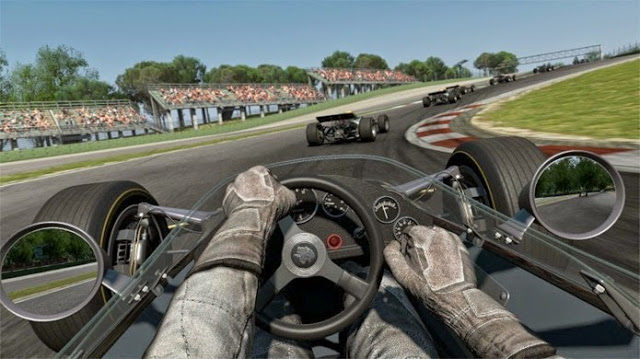

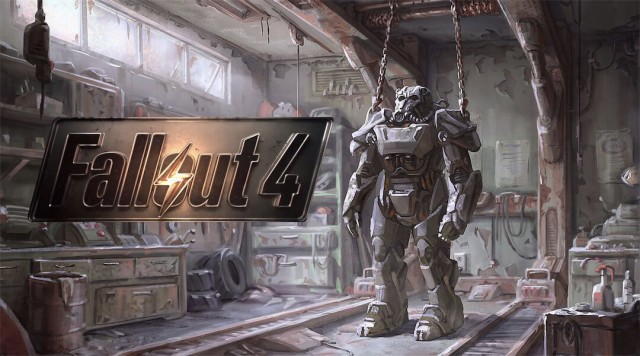

 COD Ghosts Tip: Completing Humiliation Field Orders
COD Ghosts Tip: Completing Humiliation Field Orders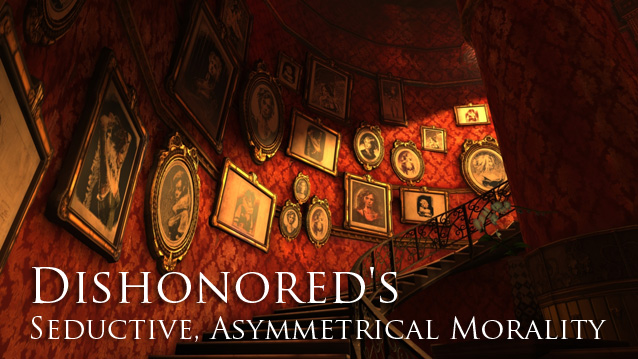 Dishonoreds Seductive, Asymmetrical Morality
Dishonoreds Seductive, Asymmetrical Morality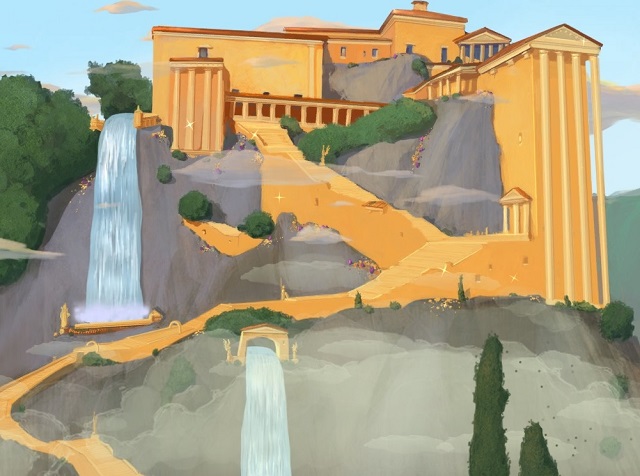 Casual Games with Surprisingly Good Stories
Casual Games with Surprisingly Good Stories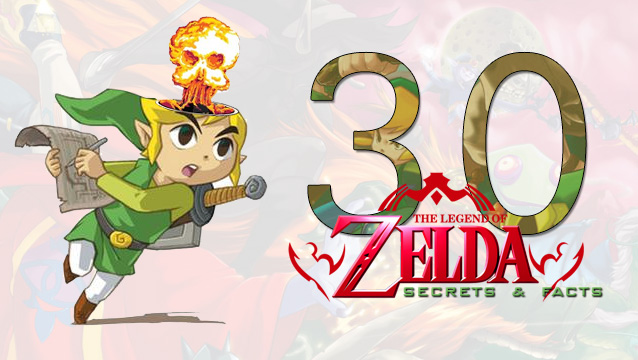 30 Mind Blowing Zelda Secrets & Facts
30 Mind Blowing Zelda Secrets & Facts Destiny: The Spinmetal material guide
Destiny: The Spinmetal material guide